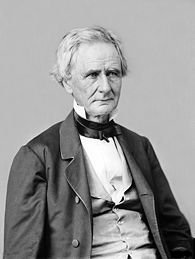(we've been warning about it for a year now)
From VentureBeat:
On Wednesday, the U.S. House of Representatives passed bill H.R. 5351 to renew a standing investment tax credit for solar, as well as wind, biofuels and other renewable sources. But as in the past, the bill faces stiff resistance in the Senate and a veto from President Bush.
Most media sources have reported on the bill as if its future is still uncertain, but the general feeling among analysts, entrepreneurs and VCs that I’ve talked to is fairly gloomy. Most expect that the credits will run out, leaving the industry in the lurch until the changing of the guard in 2009.
This same bill has been knocked down two times before without even making it to President Bush, so the persistence of House Democrats in continuing to push looks more like political in-fighting than any effort at progress.
The problem for the cleantech industry is the lack of certainty. The current set of credits runs out at the end of this year, but will probably be restored — and possibly reinforced — in 2009, especially if the Democrats win the presidential election. However, that leaves an interim period of an unknown length in which ongoing projects would be unprotected. And without absolute certainty that there will be a credit at some point, many investors could be dissuaded from projects they would otherwise have poured millions into.
Curiously, many solar cell manufacturers located in the United States stand to lose less than the country as a whole does. The CEO of Nanosolar, Martin Rosencheisen, told me that there’s strong enough worldwide demand for his products that losing the ITC would have only a marginal impact on his business....MOREFrom The Economist article "From Geeks to Greens":
...Then there is the need to focus on government policy. When it comes to green investing, public-policy risk may matter at least as much as technology risk. Even though the three main remaining candidates for the White House all say they will introduce a mandatory federal cap-and-trade scheme to limit America's carbon-dioxide emissions, the details have yet to be agreed on and the votes cast. “Managing public-policy risk is not something traditional technology executives have had to do, so there will be a steep learning curve,” says Diana Glassman, an environmental-business banker at Credit Suisse.
Finally for investors in rent-seeking organizations there is the real risk that the politicians will change the rules. Heed the words of Sen. Simon Cameron (R&D!-Pa.):
"The honest politician is one who when he is bought, will stay bought."
